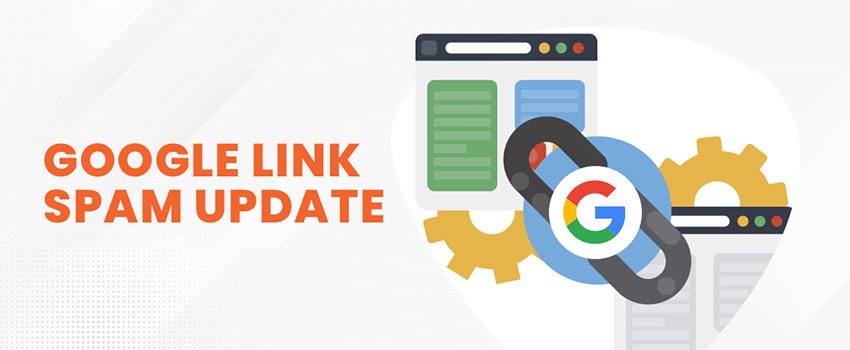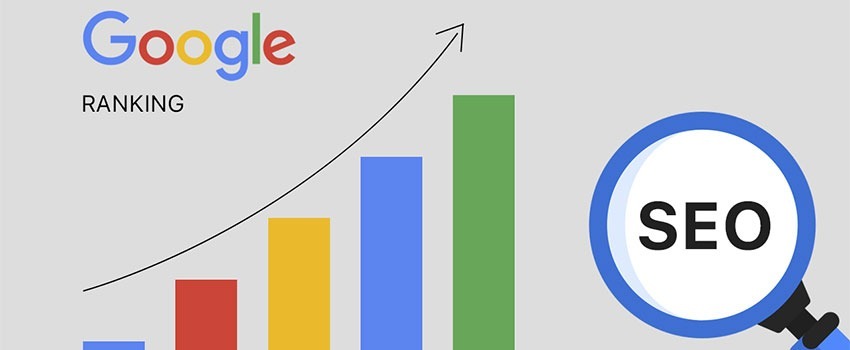5 SEO Winning Tips You Should Take Seriously
Search Engine Optimization (SEO) is quite a complex task and sometimes can become complicated especially because it is more of an art and constantly changing. Moreover, the exact metrics used by the search engines to rank websites remain a secret. Fortunately, in that respect, there are some precise and very helpful guides on how the search engines work, though there are no exact documents expressly stating the specific metrics used by Google and other search engines to assess websites.
In this post, we examine four (4) winning tips that can produce big results for your website in the search engines. Although not presented in any order of priority, these tips can be very helpful for your website to gain top rank. So here we go!
Further reading:
4 Easy Steps to Reduce Your Website Bounce Rate
SEO Tips That Guarantee Top Search Engine Rank
If you are a little bit familiar with SEO, then some of our recommendations should not be strange. However, search engine ranking factors are quite a huge number and SEO specialists only learn from Google updates and behaviour of websites following some changes. But we can guarantee good search performance if you will take these suggestions seriously. Here are our top four tips:
Link Building
On Page SEO
Quality Content
User Experience
1. Link Building
Link building is not just a recommended practice, it is top on our list of Google ranking factors. The weight that search engines give to link building has made it a common target for black hat SEOs. Never mind, there are ways to do link building that can be very rewarding. It is important to warn that aggressive link building should not just be embarked upon for the purpose of gaining ranks. Building links should support your SEO strategy, add value to the wealth of resources available to website users. So, although external links are highly valuable, internal links should also be taken seriously as they are also a ranking factor.
Want to loo at some best Practices For External Link Building? Here are our quick takeaways for building external links:
Resource Pages Link Building
Resource pages are great for building links. They are pages that contain detailed information on a topic and serve as resources on a particular topic. Resource pages will normally link out to great content on a particular topic. The first step will be to size up the resource page to determine if a link from the page is worth it. Once you are able to determine that a particular resource is relevant for your purpose and your preliminary investigation shows a website with good credibility such as a high domain authority or trust flow, then you are good to go.
The next will involve contacting the website owner with a commendation and a request such as this:
Subject: Question about [Their Website]
Hi [Name],
I was Googling around for content about [Topic] this morning, when I came across your excellent resource page: [URL].
I just wanted to say that your page helped me a ton. I would have never found the [Resource They Link To] without it.
It’s funny: I recently published a guide on [Topic] last month. It’s [Brief Description].
Here it is in case you’d like to check it out: [URL].
Also, my guide might make a nice addition to your page.
Either way, thanks for putting together your list of resources. And have a great day!
Talk Soon,
[Your Name]
You can be successful with some sources and have your link added to their resources.
Broken Link Building
In broken links building, you do not just solicit for links, rather, it adds value to a website by fixing its broken link issues. So, you see that instead of begging for links, like we saw in resource page link building, you add value to a website by addressing issues of broken links on the website. Here is how to go about it.
- Identify Broken Links. Begin by identifying broken links on eternal websites.
- Look for pages with lots of outbound links. Resource pages can be very likely to have broken links because they have a lot of outbound links.
- Identify broken links. At this point, you can use Check my links or link miner Chrome extension which should have already been installed.
- Email site owner about broken link. Once you identify the broken links, you need to contact the website owner with a simple request to address the broken link issues. Here is a sample message you can send:
Subject: Problem with [Their Site’s Name]
Hi [Name],
Are you still updating your site?
I was searching for content on [Topic] when I came across your excellent page: [Page Title or URL].
However, I noticed a few links didn’t seem to be working:
[URLs of broken links]Also, I recently published [Brief Content Pitch]. It may make a good replacement for the [Point Out a Specific Broken Link].
Either way, I hope this helped you out.
Thanks,
[Your Name]
On-Page SEO
On-page SEO refers to critical elements of website content which are basically under the control of the website administrator and are addressed in the cause of developing the site. On-page SEO is particularly important because it affects key elements of a site’s SEO and especially content development which shapes how Google sees and understands the website through the keywords embedded in its content.
It is recommended that for your website to rank at the top, it must address on-page issues properly. Every aspect of on-page SEO is important. However, we list what we consider the most critical aspects to include:
- Page title
- Page description
- Keyword usage
- Internal links
- Website speed
- Mobile friendliness
- Website structure
- URL resolution or canonicalization
Let’s now look at these key elements in greater detail.
Page Title
Website titles are a ranking factor and are critically important for real users and search engines. It is important to emphasize here that the webpage title is not where you load all the keywords you want to rank for. That practice no longer works. Please avoid keyword stuffing.
Read related article: How to Use Keywords in Website Content for SEO Gains
One major consideration in writing page titles should be the title length. Basically, titles should be kept within 60 characters. What should be the minimum is not clearly established but recently, we have found that short titles which tend to focus on “exact match” keywords can be a problem and could lead to a penalty. The other problem is very long titles. While very long titles may not harm your rankings and Google actually takes every word into consideration, it can affect click-through rates because parts of the title could be cut. We recommend that titles should be around 55 characters.
Keep in mind that web page titles are the first things visitors see when your website is displayed in the search engines so you need to craft titles that are attractive and encourage clicks. Try to use problem solving titles which tend to suit user queries.
Caution: Because of the key importance of titles and the role it plays in the ranking of a website, many webmasters are tempted to constantly change it to test the best performing titles. Well, while some A/B testing for best performing titles is a good practice, we caution that attempting to manipulate the search engines with titles is no longer advisable. Try to use the keywords you want to rank for in your title but keep in mind that titles are just one ranking factor and there are hundreds of other ranking factors you need to equally take seriously.
Page Description
The description tag is not a ranking factor but plays a role in how Google reads and understands your website. Using keywords smartly in your page descriptions can be very helpful for Google to know where to categorize your website. We recommend that you should not just have your description tag loaded with keywords. Write your description to attract visitors to click instead of focusing on the search engines.
Keep your description tag around 150 characters. Visitors may not have to read all your description but they most likely take a glance. So writing smartly can be captivative and boost click-through rates.
Keyword Usage
It should no longer be news that Google has discontinued the use of keywords as a ranking factor. However, your website will be ranked based on its content and Google uses keywords in that process. So while Google is not assessing your use of keywords as a ranking factor, you should keep in mind that how well you use them in your content can help Google understand your website and rank your content properly.
Internal Links
Google has acknowledged that internal links are a ranking factor. Does this mean you should flood your content with internal links? No! Use internal links sparsely and to add value to your content, providing additional resources to substantiate your claims or further explain a concept. Do not link internally solely for ranking purposes. In this respect, it is a bad practice to update your content only for the purpose of adding new internal links as Google could see this as unhealthy and an attempt to manipulate its search algorithm. Remember that Google hates every form of manipulation be it tarhetted at human visitors or its search algorithm.
Website Speed
Page speed is another very important element of your SEO you should take very seriously. It is a Google ranking factor and can significantly boost user experience. One study by Todhost revealed that page speed is most important factor in reducing a website’s bounce rate,
Basically, to improve your website speed, you need to implement some critical recommendations on your website:
- Enable caching.
- Minify your CSS, Javascript and other resources on your website.
- Optimize images. Possibly, compress and use a lesser number of images for optimum performance.
- Host your website with good web hosts that guarantee optimized servers for performance.
- Avoid too many redirects. The more redirects a page does, the longer it takes to load fully.
- Specify image dimensions and do not use large formats like psd.
- Compress your images on the server with GZip or other formats.
Check our detailed article on A Practical Guide to Page Speed Improvement.
Mobile Friendliness
Let us begin by stating that mobile friendliness is a very important website ranking factor and you may never hit the top ten in Google search engines if your website is not mobile friendly no matter how seriously and successful you could be with other ranking signals. The fact is that Google is interested in its search quality and will never want to serve visitors with poor quality websites such as a non-mobile friendly website. So, whatever platform or Content Management System, CMS, you deploy for your web development, ensure that it is mobile friendly.
Website Structure
This is important for user experience. A good website structure helps users navigate with ease and find what they are looking for quite easily. Having a search button for internal search can also be very helpful. Because Google is interested in user experience, it will usually consider a good website structure as an advantage that improves user experience. Another important aspect of your website structure is the structure of your internal links. It is recommended that you use clean URLs instead of some complex long URLs.
URL Canonicalization
This is important to avoid duplicate content. Although duplicate content issues do not result in a Google penalty, it can hurt when it occurs massively. It is therefore important to ensure that you set a preferred URL for your domain. You can choose to have them resolve using the www or non www.
Quality Content
This is quite a very versed area in SEO but we will try to summarize some of the key aspects you should take seriously. Keep in mind that doing the right on-page SEO will add to your content quality. The quality of your content will also be measured by the number of external links to it. So the more links to a content on your site, the more valuable Google will see it.
That being said, here are some key aspects of what will amount to content quality:
In-depth Coverage
This is not about content length but quality. For example, this article is about four SEO strategies that will help ranking. Rather than a straight mention of the four SEO strategies and discussing them in two or three paragraphs, which was the case some ten years ago, we are taking time to break them into smaller bits to help the user understand the topic deeply and make it more useful to anyone who visits.
So quality content will mean dealing with the topic extensively. Now, we will usually choose a topic before writing and then try to list the key sections to be covered. During the writing phase, we do some research to identify all the important elements and treat them with some detail.
Internal Links
Add value to your content with links to your own internal pages. This does not only help reduce your website bounce rate, it also increases the dwell time and allows readers to verify some of the information as provided in previous posts.
External Links
Just like internal links, sometimes, you need to refer users to an external link to verify the source of a claim. Here, we warn that you should be careful to choose eternal link sources. Link to websites with high trust and authority and also check if their content is related to your in terms of business area or industry. Don’t just link, make sure every link adds value to your content.
Use Relevant Keywords
Your content will be assessed by the words used in it. That is how Google will categorize and rank it too. Keywords themselves will not help it rank but searches are done with key words and phrases so the words you use can help Google understand your content and how to serve them to searches.
Related article: How to Use Keywords in Website Content for SEO Gains
User Experience
The Google search engine was created for people and not just for the bots who crawl the web daily. Google itself is also interested in quality and to see that its search results provide the best responses to search queries. So, any content that shows signs of quality and satisfying user intents gets high ranking in the search engines.
There are key user experience metrics Google uses to understand content quality. In the Post, In the article, How to Optimize Your Website to Boost User Experience, we identified ten key user experience metrics you should take seriously:
Ease of navigation – Simplify your website navigation and make it easy for people to find what they are looking for. Having submenus can be helpful and Google tae child menus into account in assessing websites.
Grammar and errors – It is important that you avoid errors including grammatical errors as much as possible. Errors can turn people away from your website.
Call to action – Get people to take action which could include reading extra content, signing up for a newsletter, registering for an activity or an outright product purchase.
Speed – Nobody likes a slow website. The faster your website, the more likely people will be compelled to visit more pages beyond the landing page.
Clickability – Make your clickable elements as profound as possible. Adults and youths do not have the patience to find clickable elements on your page.
Mobile friendliness – Your website should resolve properly on both mobile and desktop and should not have issues with the different browsers.
In-depth coverage of subject matter – We have dealt with this earlier. Provide as much information as possible for your users to help them address their concerns.
Clarity and simplicity – Use standard language devoid of unnecessary jargons.
Visuals, images and color contrast – Images can make for attractiveness and increase click through rates. Use them sparingly but wisely..
Page ads and intrusions – Avoid ads and intrusions that distort the page or obstruct accessibility to useful content.
Final Words
Stick to the rules and be patient. Yes, sticking to the rules here implies that you must avoid every temptation to try to manipulate the search engines to achieve very quick results and patience is important because SEO takes time. When we started optimization for our website, we made changes and days later expected the changes to impact website ranking. When we don’t get the desired results, we change things like page titles and descriptions and so on. Let it be known that SEO does not work like that any longer.
Avoid things like keyword stuffing, buying links, trying to get reciprocal links, links from spammy websites and any activity that you engage in which is intended to game the system or compell the algorithm to favour your website but not based on the value your content offers.
Finally, keep an eye on updates to the Google Search Guidelines and monitor changes announced by Google to its search engine ranking factors.











